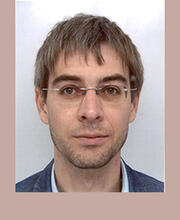Matthias Kaltenbrunner

Title of Research
The Globally Connected Village: A Ukrainian Migration History
Abstract
What analytical framework do we need to study villages shaped by intensive and long-lasting migration processes? I tackle this question by scrutinizing a cluster of West Ukrainian villages in the course of the 20th century.
Migrants and non-migrants were closely interconnected by manifold networks. After a short period of homesteading in the Canadian Prairie Provinces, there was a sharp transition to what I call “intended temporary migration” or "Americanization" as early as 1903. It was mostly men, single as well as married, who were commuting back and forth and thus created robust and enduring networks with those left behind. Remittances sent back to the villages played a major role,even after Canada closed its doors to migrants in 1930. The establishment of a direct parcel service in 1955 enabled migrants to resume their previous economic functions, sending textiles instead of money to non-migrants (in particular, kerchiefs).
To fully grasp this phenomenon, it is necessary to synthesize migration and village history, striving toward a “microhistory of the globally connected village.” Thus,the village is perceived as a relational social space composed of networks between migrants and non-migrants.
Short Biography
Matthias Kaltenbrunner is a Postdoctoral Fellow at the Kule Centre for Ukrainian and Canadian Folklore, University of Alberta, Canada. He has been an assistant professor at the Institute of East European History, University of Vienna, Austria, from 2015 to 2019.
Research Interests
Ukrainian and East European history in the 19-20th century; migration history; global history; history of WWII